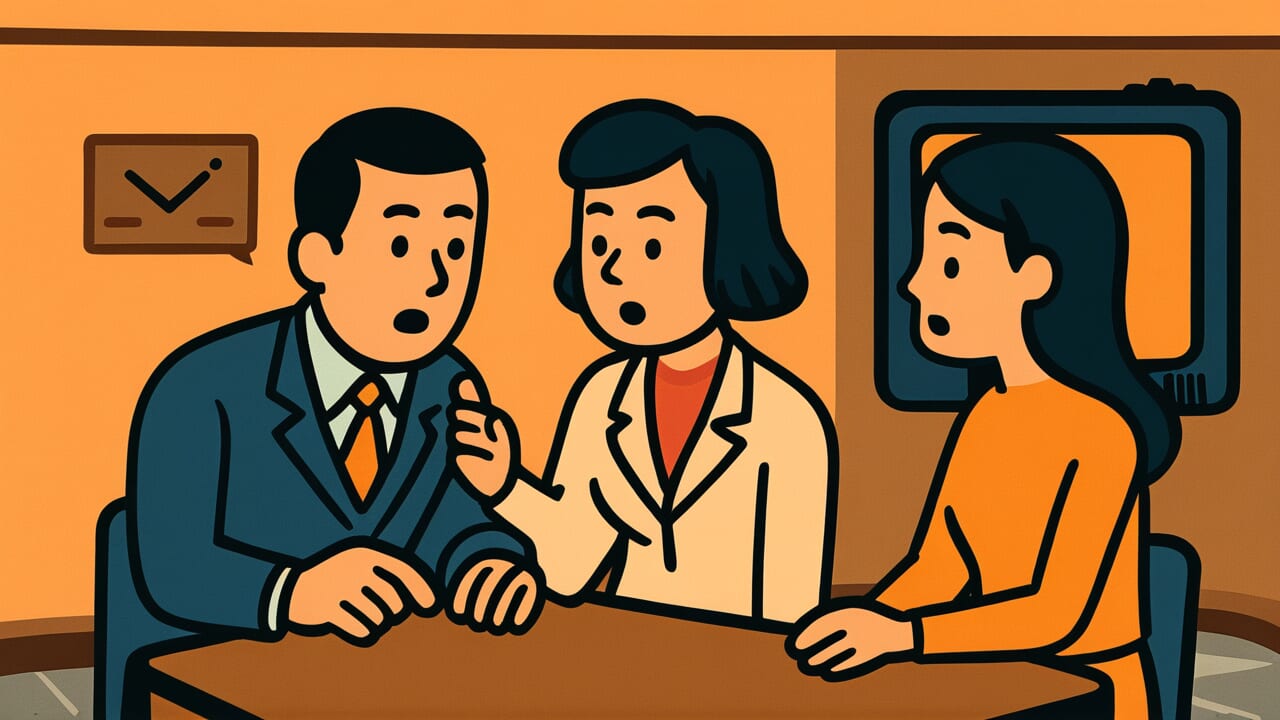How to Read “Quick infatuation, quick boredom”
Chikabore no hayaaki
Meaning of “Quick infatuation, quick boredom”
“Quick infatuation, quick boredom” means that people who fall in love suddenly also lose interest quickly. It describes how romantic feelings that flare up intensely and suddenly, like love at first sight, tend to cool down just as rapidly.
This proverb applies to relationships where someone becomes infatuated based only on appearance or first impressions. When emotions rush ahead before you truly know the other person, your feelings can fade quickly once reality sets in over time.
Even today, you can remember this saying when you feel swept up in impulsive romantic feelings. It also applies when you see someone suddenly becoming passionate about something.
The lesson extends beyond romance to hobbies and work passions too. This proverb contains the wisdom of our ancestors: feelings that grow slowly over time become genuine, lasting love.
Origin and Etymology
No clear written records document the origin of “Quick infatuation, quick boredom.” However, the structure of the phrase offers interesting insights.
The word “chikabore” (quick infatuation) uses “chika” meaning “near” or “close” in time. This suggests falling in love “suddenly” or “abruptly.” People in the Edo period understood through experience that how love begins affects how long it lasts.
A contrasting term “tōbore” (distant infatuation) also existed. This referred to love that develops slowly over time. Such paired expressions are characteristic of traditional Japanese language patterns.
“Hayaaki” (quick boredom) literally means getting bored quickly. The proverb reflects the observation that emotions which rise sharply tend to fall just as sharply. This is a basic human psychological pattern.
During the Edo period, merchant culture produced many lessons about romance. Our ancestors witnessed people ruining their lives by drowning in intense loves like love at first sight. They passed down this wisdom as a warning to young people, and it became condensed into this saying.
Usage Examples
- He was so crazy about her last week, but now he’s already lost interest. Quick infatuation, quick boredom, right?
- I heard that couple who started dating after love at first sight broke up after three months. It really proves the saying “Quick infatuation, quick boredom.”
Universal Wisdom
“Quick infatuation, quick boredom” contains universal wisdom that sharply perceives the nature of human emotions. Why don’t feelings that arise suddenly last long?
The human heart follows a mysterious law. The shorter the process of obtaining something, the less we value it. What we gain without effort, we also let go of easily. This truth applies not just to romance but to all human relationships and pursuits.
Intense feelings like love at first sight may not be about the actual person. You might be falling for an idealized image you created yourself. Before knowing the real person, you beautify them in your imagination. Then as time passes and you see their true self, disappointment comes from the gap between ideal and reality.
Our ancestors knew that genuine love must be cultivated over time. Relationships where you understand both strengths and weaknesses and still cherish the person become bonds that support your life.
This connects to the saying “more haste, less speed.” It reveals a deep truth about human relationships. What matters is not the intensity of emotion but its depth. This is timeless wisdom for living.
When AI Hears This
Dopamine neurons in the brain have a fascinating characteristic. They respond most strongly to “unexpectedly good things” and barely respond to “predictably good things.”
For example, when you meet an attractive person for the first time, your brain encounters an unexpected reward. At this moment, dopamine neurons fire three to five times more actively than normal.
The larger this “prediction error”—the gap between expectation and reality—the stronger the euphoria you feel. However, as the person’s responses and appeal become predictable with each meeting, dopamine release rapidly decreases for the same stimulus. The brain assigns low reward value to “predictable things.”
Even more noteworthy is how fast this decay curve moves. Neuroscience experiments show that only 10 to 15 trials are enough for a reward to become completely predictable.
This means relationships that develop rapidly reach the “predictable” judgment faster in the brain. The dopamine reward system’s activity decline also accelerates.
The phenomenon this proverb points out isn’t really about romantic feelings. It’s about the mathematical properties of the brain’s learning system itself. The brain’s basic function of minimizing prediction error ironically creates the decay of passion.
Lessons for Today
This proverb teaches us to reconsider the value of taking time in a culture that seeks instant gratification.
Modern society values speed. On social media, “likes” appear instantly. Dating apps let you choose partners in seconds. But don’t truly important things take longer to obtain?
This applies beyond romance. In work and hobbies too, haven’t you jumped in based on initial excitement only to quickly lose interest? What truly enriches your life lies in relationships deepened over time and efforts accumulated steadily.
This proverb tells you not to rush. When you feel swept away by intense emotions like love at first sight, pause and think. Take time to truly know the other person.
That becomes the shortcut to building relationships that genuinely fulfill your heart. More haste, less speed. Love cultivated slowly becomes the force that supports your life.



Comments